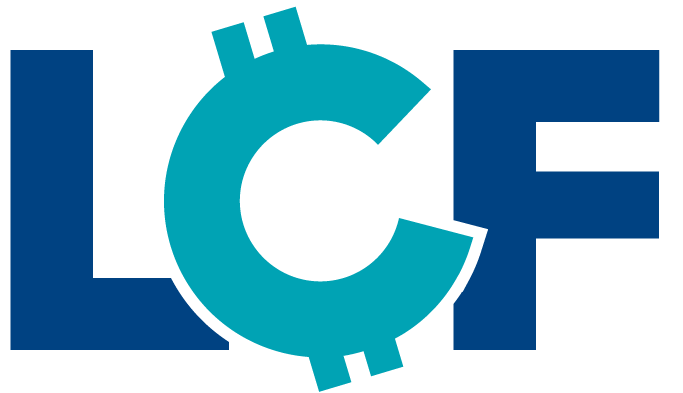- (888) 499-2939
- [email protected]
- Monday - Friday 9:00 am to 6:00 pm ET
Commercial Financing: Everything you need to know about SB 1235 in California
Lets Get Started
Though it was signed into law years ago (in September of 2018), California’s S.B. 1235 will go into effect on Friday, December 9, 2022. This law amends California’s Financing Law in ways that directly affect providers of commercial financing, like The LCF Group. Please note, to comply with these new regulations, starting December 1st, The LCF Group will require four months of bank statements for all cash advance applications in California.
A small business loan comes with many loan options based on the type of business, the purpose of the loan and even the loan amount. Furthermore, since many business lenders will require a personal guarantee of repayment from the business owner, it’s common for lenders to require a good personal credit score before qualifying for certain loans. However, this is not always the case. For example, a merchant cash advance or revenue-based financing rarely requires a personal guarantee. Similarly, loans that are collateralized by business assets or real estate may not require good credit or any credit check at all.
The point here is that it’s important for small business owners to understand the different types of business financing options and loan programs. Choosing the right small business financing for your business needs can have a significant impact on interest rates, repayment terms and cash flow.
Several types of funding are affected by the regulatory changes coming with S.B. 1235. These include invoice factoring, “asset-based lending transactions,” commercial financing, commercial open-ended loans, lease financing, and merchant cash advances.
As we know, merchant cash advances (MCAs) are not loans. And that distinction means that MCAs aren’t subject to many of the laws and regulations that govern the underwriting of more traditional types of loans.
What does S.B. 125 Do?
The main purpose of S.B. 1235 is to codify the disclosures that funding providers give their borrowers in order to achieve greater transparency through the transaction. The bill makes it so that the recipient of funding must sign disclosure forms before receiving funding through a financing transaction like an MCA. These disclosures include:
- The total dollar amount of funding
- The total cost of that funding in dollars
- The approximate annual percentage rate (APR) of the funding
- Options for payment frequency
- Repayment methods
- Repayment policies
- Approximate timeframe for repayment
On top of the disclosures themselves, the bill makes sure to give very detailed instructions on just how these disclosures must be formatted and presented, and they must occur before any money changes hands.
On top of the disclosures, the biggest change to the MCA application process is that in accordance with S.B. 1235’s §930(b)(2), four months of bank statements are now required for all cash advance applications in California.
Critics of the new law, like the Secured Finance Network, an association of lenders including many affected by the new regulations in California, say that S.B. 1235 will actually create a more confusing experience for borrowers. After all, the approximate APR of an MCA depends on the recipient’s sales volume: the more the company makes per month, the more they pay back, and the higher the APR. There’s concern that with these disclosures involving many assumptions, some lenders may be nervous to provide MCAs in California moving forward.
However, the LCF Group is happy to say that we will be fully ready to comply with all aspects of S.B. 1235 on the day it takes effect. We’re ready to help small businesses in California get the funding they need, when they need it, with complete transparency into your costs and options.
Questions about S.B. 1235
Critics of the new law, like the Secured Finance Network, an association of lenders including many affected by the new regulations in California, say that S.B. 1235 will actually create a more confusing experience for borrowers. After all, the approximate APR of an MCA depends on the recipient’s sales volume: the more the company makes per month, the more they pay back, and the higher the APR. There’s concern that with these disclosures involving many assumptions, some lenders may be nervous to provide MCAs in California moving forward.
However, the LCF Group is happy to say that we will be fully ready to comply with all aspects of S.B. 1235 on the day it takes effect. We’re ready to help small businesses in California get the funding they need, when they need it, with complete transparency into your costs and options.
Recent Posts

Obtaining financing can be a pivotal step for small business owners looking to scale their ventures. However, for those with less-than-stellar credit scores, navigating the realm of business funding can feel daunting. Thankfully, even with bad credit, options exist to fuel your business aspirations. In this

In the world of small business financing, there’s a myriad of options available, each with its own set of pros and cons. One such option that’s gaining popularity among small business owners is the merchant cash advance (MCA). But what exactly is a merchant cash advance, and is it the right choice

The trucking and transportation industry is the backbone of commerce, ensuring goods are moved efficiently across regions. For small business owners in this sector, financial management is crucial to keeping trucks on the road so you can maintain operations and achieve growth. This


